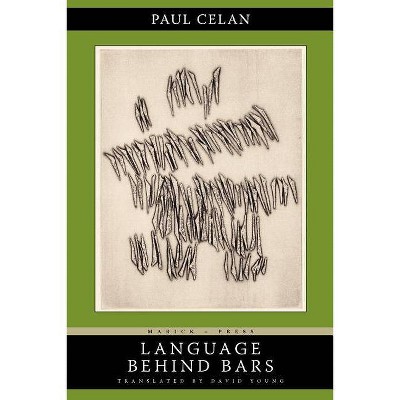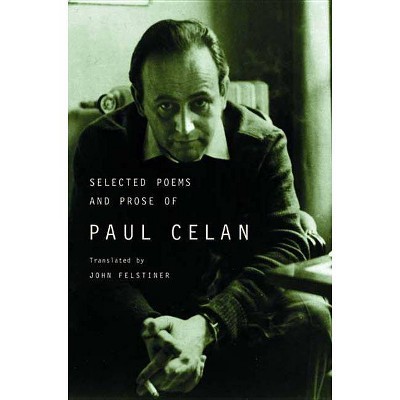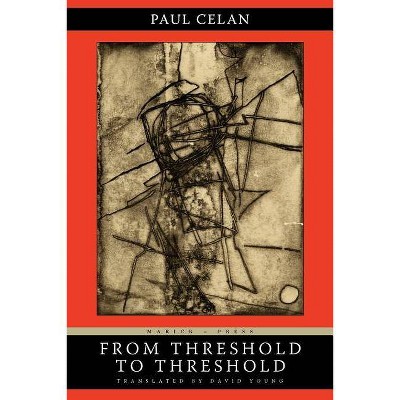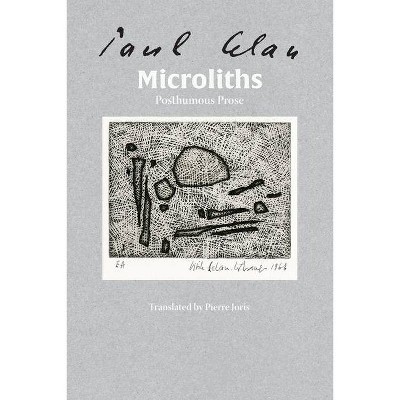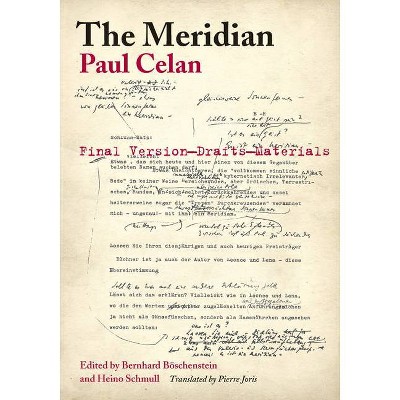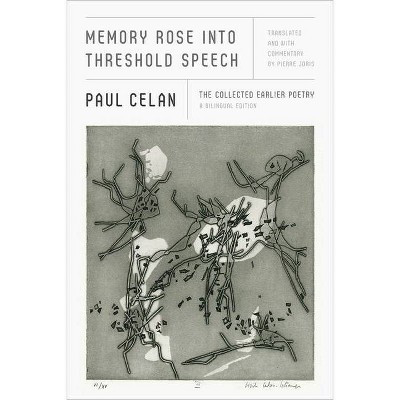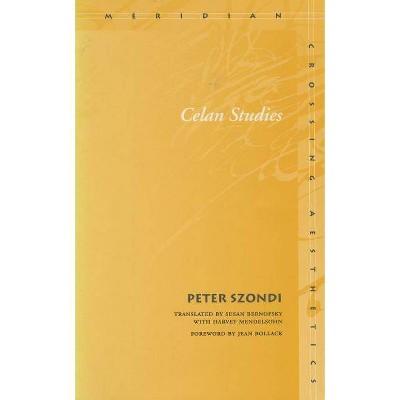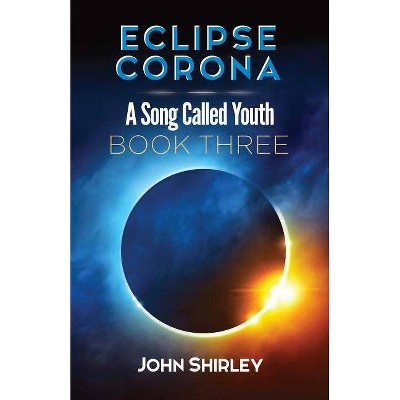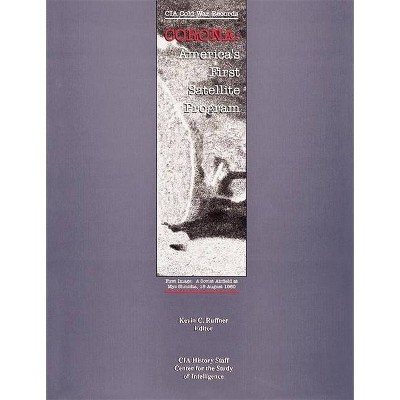Corona - by Paul Celan (Paperback)
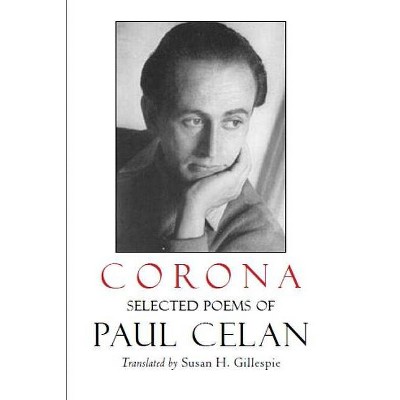
Similar Products
Products of same category from the store
AllProduct info
<p/><br></br><p><b> About the Book </b></p></br></br>Poetry. Bilingual Edition. Translated from the German by Susan H. Gillespie. Paul Celan, arguably the mid-20th century's most important German-language poet, is commonly pigeonholed as a poet of the Holocaust--a term, however, he never used. Undoing facile assumptions about Celan, CORONA charts a more idiosyncratic and personal path through Celan's large oeuvre, choosing 103 poems from among the more than 900 Celan published. The bilingual selection includes work from all of Celan's periods and genres. Without ignoring the poet's well-known work of memory and memorialization, it seeks to open a space for new appreciation of Celan's love poems, as well as his poems on political events, painful reflections on his stays in mental hospitals, and quasi-burlesque verse. Susan H. Gillespie's translations are characterized by their ease of diction and their attention to the "somatic" and rhetorical aspects of Celan's lines--their sound, gait, tone, and gravity--as well as to their internal and external echoes. The latter, elucidated in notes to the poems, include references to other poets and to Celan's wide readings of everything from specialized dictionaries to other writers--what Roman Jakobson called their "poetic etymology." "Here, poetry is not what gets lost in translation," writes Gillespie in the Introduction, "it is, itself, an act of translation--of experience and thought--into new language."<p/><br></br><p><b> Book Synopsis </b></p></br></br>Poetry. Bilingual Edition. Translated from the German by Susan H. Gillespie. Paul Celan, arguably the mid-20th century's most important German-language poet, is commonly pigeonholed as a poet of the Holocaust--a term, however, he never used. Undoing facile assumptions about Celan, CORONA charts a more idiosyncratic and personal path through Celan's large oeuvre, choosing 103 poems from among the more than 900 Celan published. The bilingual selection includes work from all of Celan's periods and genres. Without ignoring the poet's well-known work of memory and memorialization, it seeks to open a space for new appreciation of Celan's love poems, as well as his poems on political events, painful reflections on his stays in mental hospitals, and quasi-burlesque verse. Susan H. Gillespie's translations are characterized by their ease of diction and their attention to the somatic and rhetorical aspects of Celan's lines--their sound, gait, tone, and gravity--as well as to their internal and external echoes. The latter, elucidated in notes to the poems, include references to other poets and to Celan's wide readings of everything from specialized dictionaries to other writers--what Roman Jakobson called their poetic etymology. Here, poetry is not what gets lost in translation, writes Gillespie in the Introduction, it is, itself, an act of translation--of experience and thought--into new language.<p/><br></br><p><b> About the Author </b></p></br></br><b>Susan H. Gillespie</b>'s study of the German language follows extensive post-graduate studies at the University of Freiburg. She has translated Theodor W. Adorno and other writers of musicological and philosophical works, as well as fiction and poetry, and her book-length translations include _The Correspondence of Paul Celan & Ilana Shmueli_, a National Translation Award finalist. A vice president of Bard College, she is the founder o0f the Institute for International Liberal Education. <b>PAUL CELAN</b> was born in Romania in 1920. In 1942, his parents were deported and died in an extermination camp. Celan escaped but was in a labor camp until 1944. In 1948, he settled in Paris, which remained his home until his suicide by drowning in 1970. Though he lived in France and was influenced by the French surrealists, he wrote his own poetry in German. Celan received the Bremen Prize for German Literature in 1958 and the Georg Buchner Prize in 1960.
Price History
Price Archive shows prices from various stores, lets you see history and find the cheapest. There is no actual sale on the website. For all support, inquiry and suggestion messagescommunication@pricearchive.us
